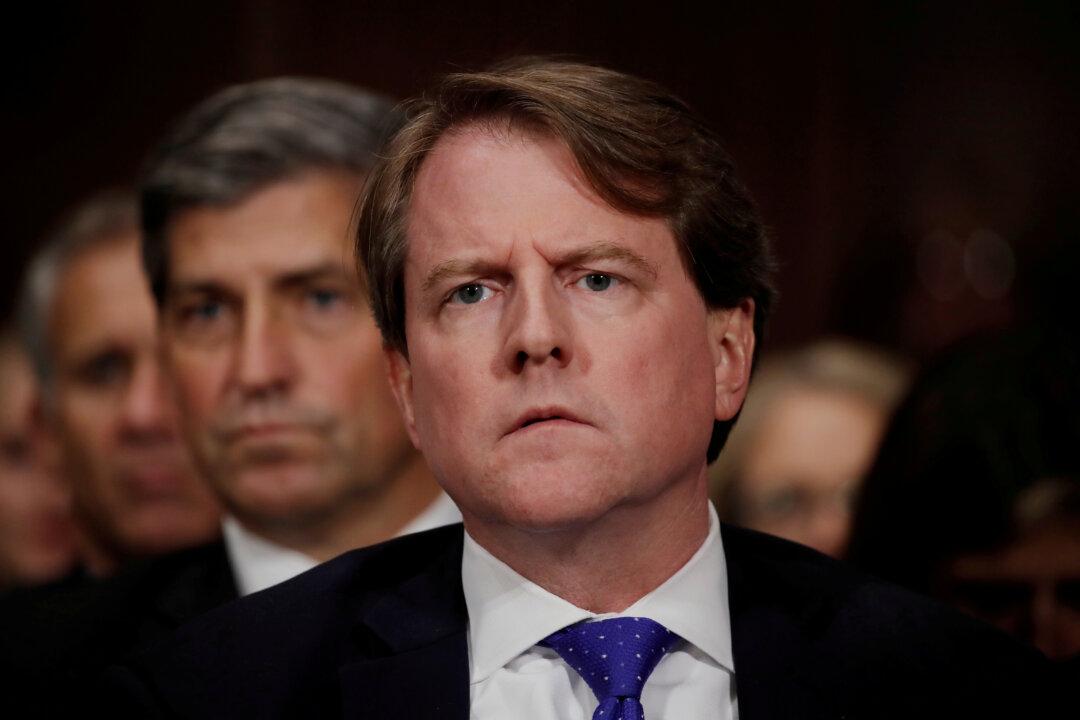The Justice Department and attorneys for the House Judiciary Committee say they have reached an agreement in a case seeking to enforce a subpoena demanding testimony from former Trump White House counsel Don McGahn.
In a filing to a federal appeals court, lawyers from both sides said that the parties have reached an agreement “in principle” on an accommodation in the years-long lawsuit. It also asked the court to remove the case from its May calendar in order to allow the parties to implement that accommodation.




